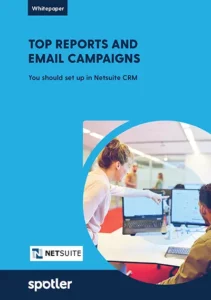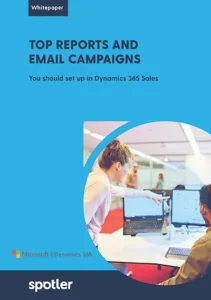Let’s be honest. Business software isn’t exactly cocktail party conversation. But if you’ve ever tried to grow your business with the wrong tools (or none at all), you know how quickly things can fall apart.
Enter CRM and ERP. These systems may sound like techy acronyms, but they are the quiet powerhouses behind modern businesses. One is all about customers. The other? Operations. Both matter. A lot.
But they’re not the same. And if you confuse one for the other (or worse, try to use one when you really need the other), you could end up with a mess of missed opportunities and operational chaos.
This post will help you make sense of it all. What they are. How they’re different. Why you might need both. And what to do if that’s the case?
Why knowing the difference between CRM and ERP matters
Think of CRM and ERP as two sides of your business brain. CRM is the part that remembers names, follows up, and builds relationships. ERP is the side that handles schedules, keeps the books, and tracks inventory.
If you only listen to one side, things get lopsided. And costly. You might overspend on software that doesn’t fit or waste months on the wrong setup.
Understanding what each system does saves time, money and more than a few headaches.

What is a CRM, really?
CRM stands for Customer Relationship Management. Fancy term. Simple idea.
A CRM helps you keep track of everyone your business talks to: leads, customers, even those who downloaded your eBook three weeks ago and haven’t been back since.
It’s your digital Rolodex, but smarter. Way smarter.
Top things a CRM can do:
- Store contact info and history in one tidy place
- Track sales deals as they move through the pipeline
- Automate marketing campaigns like emails and social posts
- Manage customer service conversations and support tickets
- Report on what’s working (and what’s not)
A CRM is your secret weapon if customer happiness and growing sales are your goals.
So what’s an ERP then?
ERP stands for Enterprise Resource Planning. Don’t let the name scare you. It’s just software that runs the inner workings of your business.
Finance, HR, inventory, supply chain, payroll. All the behind-the-scenes stuff that keeps the lights on and the goods moving.
Here’s what ERP usually covers:
- Accounting and financial reporting
- Employee records and payroll
- Inventory tracking and warehouse management
- Supplier orders and deliveries
- Manufacturing and production scheduling
If your business is growing and the spreadsheets are getting out of hand, ERP might be what you need.
CRM vs ERP: not a rivalry, just different jobs
You wouldn’t expect your marketing team to run payroll. The same goes here.
A CRM helps you connect with customers. An ERP enables you to run your business efficiently. One is outward-facing. The other is inward-facing.
Here’s a quick cheat sheet:
| Feature | CRM | ERP |
|---|---|---|
| Main focus | Customers | Operations |
| Used by | Sales, Marketing, Support | Finance, HR, Logistics |
| Data type | Leads, deals, emails | Stock levels, budgets, pay |
| Main goal | Grow revenue | Boost efficiency |
It’s not either-or. Many businesses use both. And when the two talk to each other? That’s when things get really good.
Final thought
You don’t need to be a tech wizard to understand CRM and ERP. You need to know what problems you’re trying to solve.
If it’s all about growing relationships, go CRM. If it’s about running smoother behind the scenes, go ERP. If you need both (and many do), Spotler CRM could be just what you’re looking for.


